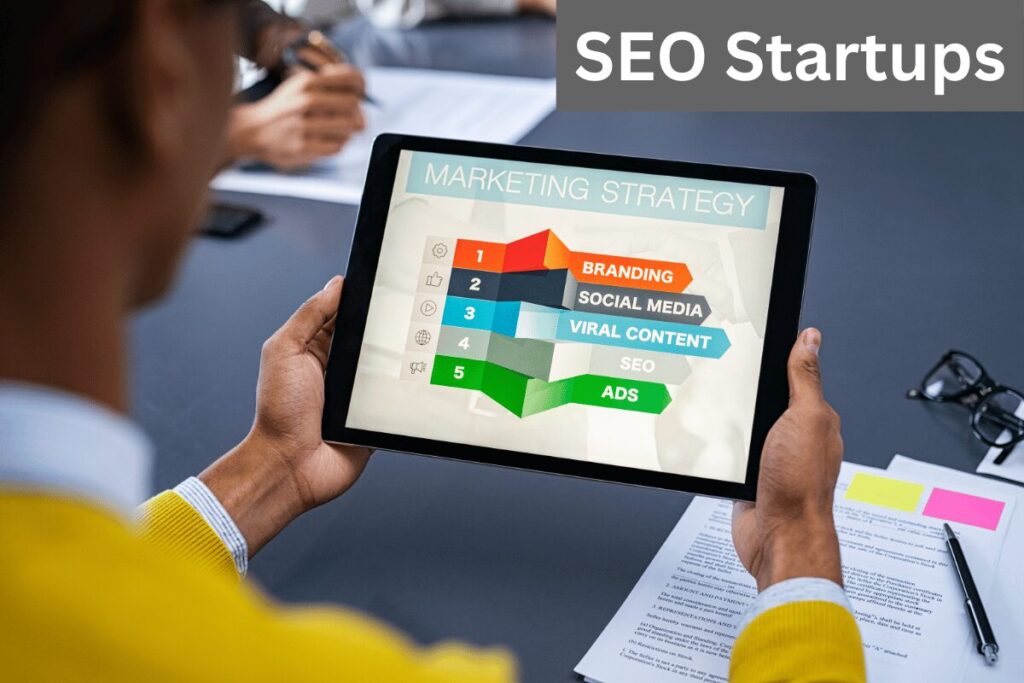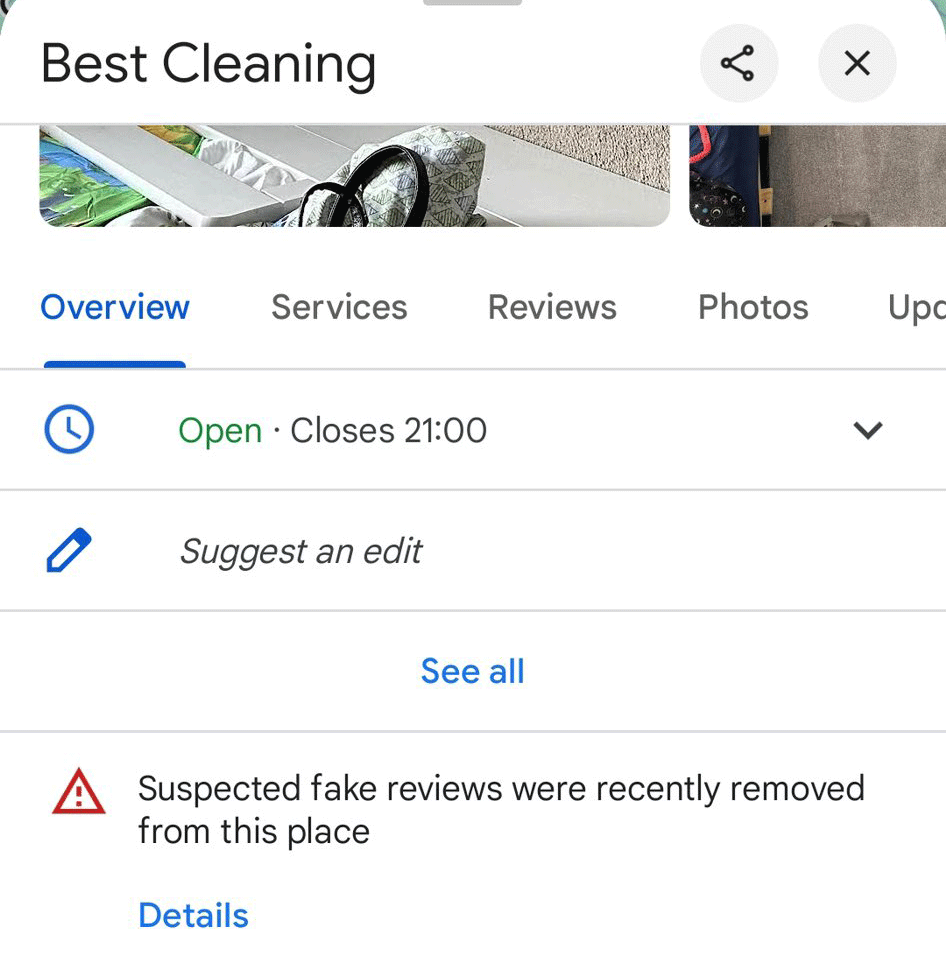
Top Affordable SEO Tools to Boost Your Rankings
BlogCheap SEO Tools: Your Wallet’s New Best Friend (No, Really) Let’s cut to the chase: SEO doesn’t have to cost you a kidney. We’ve all been there—staring at pricey software subscriptions or agency quotes that make your bank account weep. But here’s the kicker: you can boost your rankings, drive traffic, and outsmart competitors without selling your soul to the “SEO overlords.” And guess what? We’re sharing exactly how. (Spoiler: Our pals at Sitelinx Organic SEO Agency in Los Angeles might pop up a few times. They’re kinda genius at this stuff.) Why Cheap SEO Tools Deserve a Spot in Your Toolkit Look, we get it. “Cheap” often screams “sketchy” or “barely works.” But hear us out: some of these tools are like that underrated coffee shop down the street—affordable, reliable, and surprisingly good. Here’s why budget-friendly SEO tools rock: They’re perfect for small businesses (because not everyone has Fortune 500 cash). You can test strategies risk-free before committing to pricier options. Many offer free trials or freemium plans—hello, zero upfront costs! And hey, if you’re drowning in spreadsheets or keyword chaos, Sitelinx Organic SEO Agency offers technical SEO services that pair beautifully with these tools. Think of them as the Avengers to your Iron Man. Our Top Picks: Cheap (But Not Cheapish) SEO Tools Let’s get tactical. Below, we’ve rounded up tools that punch way above their weight class. Bonus: we’ve even thrown in a comparison table because, let’s face it, adulting is easier with charts. Tool Price Best For Why We’re Obsessed Ubersuggest Free/$29/month Keyword Research Neil Patel’s brainchild—simple and powerful Screaming Frog Free/$259/year Technical SEO Audits Crawls sites faster than your morning coffee AnswerThePublic Free/$99/month Content Ideas Visualizes search queries like a mind map Pro Tip: Pair these with WordPress SEO services (shoutout to Sitelinx’s team for making WordPress sites sing) to automate meta tags, optimize images, and slash loading times. local SEO on a Budget: Because Your Neighborhood Matters Trying to dominate local searches without a trust fund? Same. Here’s the cheat code: Google Business Reviews: Claim your profile, post updates, and politely beg for reviews. (No, really—95% of customers read them.) Local Citations: Use free tools like Moz Local to ensure your biz details are consistent everywhere. Community Engagement: Partner with local influencers or host events. FYI, if this sounds exhausting, Sitelinx Organic SEO Agency offers local SEO packages that handle everything from Google My Business to hyper-local keywords. Because life’s too short to manually update 50 directories. WordPress SEO: Plugins That Won’t Empty Your Wallet If your site runs on WordPress (and let’s be real, 43% of the web does), these plugins are game-changers: Yoast SEO: Free version covers basics like meta descriptions and readability checks. WP Rocket: Speed optimization without the $200/month price tag. Broken Link Checker: Because 404 errors are so 2010. But wait! Even the best plugins can’t fix spaghetti code or server issues. That’s where Sitelinx’s WordPress SEO services swoop in—handling everything from XML sitemaps to .htaccess tweaks. Common Mistakes: How to Not Waste Time & Money Cheap tools are awesome… unless you’re using them wrong. Avoid these facepalm moments: Ignoring Mobile Optimization: Google’s mobile-first indexing isn’t a suggestion. Keyword Stuffing: Write for humans, not robots. (Unless you want to sound like a malfunctioning AI.) Skipping Analytics: Tools like Google Search Console are free. Use them! IMO, the biggest mistake? Trying to DIY everything. Sometimes, you need an SEO specialist—like the crew at Sitelinx—to untangle technical nightmares. “Should I Just Hire an SEO Company Instead?” (We See You, Overthinkers) Great question! Cheap tools are stellar for DIYers, but there’s a line. If you’re dealing with… Plummeting rankings after a Google update A site slower than dial-up Zero idea how to fix crawl errors …it’s time to call the best SEO company for small business needs. Cough Sitelinx cough. Their SEO services blend strategy, tech fixes, and content magic—all without the corporate price tag. Your Burning Questions, Answered Q: Are cheap SEO tools as effective as expensive ones? A: For basics? Absolutely. But advanced tasks (like enterprise-level audits) might need heavy-duty software—or a pro SEO agency like Sitelinx. Q: How do I pick the right tool? A: Match tools to your goals. Keyword research? Ubersuggest. Technical issues? Screaming Frog. Still lost? A marketing consultant can help. Q: Can I handle SEO myself? A: Yes—if you’ve got time to learn. No? Agencies exist for a reason. 🙂 Wrapping Up: Cheap Tools + Smart Strategy = SEO Gold At the end of the day, SEO isn’t about throwing cash at the problem. It’s about working smarter, not harder. Use budget tools to nail the fundamentals, lean on website management hacks, and when you hit a wall—please—call Sitelinx. Their team turns chaos into clicks, and honestly? They’re way cheaper than therapy. Final thought: Why stress over SEO alone? Hit up Sitelinx Organic SEO Agency and watch your rankings (and sanity) soar. 🚀

Expert Video SEO Services to Boost Your Online Visibility
BlogVideo SEO Services: Because “Upload and Pray” Isn’t a Strategy Ever spent hours crafting the perfect video—polished visuals, witty script, background music that slaps—only to watch it vanish into the YouTube abyss? (Spoiler: We’ve all been there.) Let’s be honest: hoping Google magically notices your masterpiece is like tossing a message in a bottle… into the Mariana Trench. That’s where Video SEO swoops in like a superhero with a very specific set of skills. At Sitelinx Organic SEO Agency in Los Angeles, we’ve seen it all—from viral cat videos (yes, even those need SEO) to corporate explainers that deserve more love. Today, we’re breaking down how Video SEO works, why it’s non-negotiable, and how to avoid the cringe-worthy mistakes that keep your content buried. Let’s get into it. What Even Is Video SEO? (And Why Should We Care?) Video SEO isn’t just slapping keywords into a title and crossing your fingers. It’s a full-blown strategy to make your videos discoverable, watchable, and shareable. Think of it as matchmaking your content with the right audience. Here’s the kicker: YouTube is the second-largest search engine globally. Combine that with Google’s obsession with video (hello, featured snippets and video carousels), and you’ve got a recipe for traffic gold—if you play your cards right. Video SEO 101: The Nuts and Bolts Keyword Research: No Crystal Ball Needed We don’t need psychic powers to guess what people are searching for—just tools like Ahrefs or VidIQ. Target keywords like “how to fix a leaky faucet” instead of “plumbing fun times.” Pro tip: Long-tail keywords are your BFF here. FYI: If you’re a local business, sprinkle in Local SEO keywords. “Best vegan bakery in LA” hits different than “vegan cupcakes.” Titles & Descriptions: Clickbait’s Classy Cousin Your title needs intrigue and clarity. “10-Minute Abs Workout” is fine, but “10-Minute Abs Workout That Actually Works (No Equipment)”? Chef’s kiss. Descriptions should be detailed but skimmable—like a Netflix synopsis. WordPress users: Plugins like Yoast SEO can help optimize metadata without coding chaos. Thumbnails: The Billboard for Your Video Bright colors, bold text, and a facial expression that says, “Trust me, I’m mildly chaotic but competent.” Avoid thumbnail fails like tiny text or cluttered visuals. Common Video SEO Mistakes (And How to Dodge Them) We’ve all seen the train wrecks: Ignoring transcripts: Google can’t “watch” your video, but it can read transcripts. Skip this, and you’re basically ghosting the algorithm. Forgetting mobile users: 70% of YouTube watch time happens on phones. Tiny text? Blurry thumbnails? Nope. Neglecting Google Business reviews**: If you’re a local biz, embed videos in your GMB profile. Social proof + SEO = win. Why Hire a SEO Agency? (Hint: Time ≠ Infinite) Sure, you could DIY Video SEO. But between scripting, editing, and figuring out why your mic sounds like a haunted fax machine, do you really have time to geek out on schema markup? Here’s where a SEO specialist (like, ahem, us at Sitelinx) comes in clutch: Technical SEO services: Fixing video sitemaps, optimizing load speed, and other wizardry. Content strategy: Aligning videos with your audience’s actual pain points. Analytics deep dives: Because “views” don’t pay the bills—conversions do. IMO, partnering with a SEO company is like hiring a co-pilot. You steer creativity; we handle the alt-text, backlinks, and existential dread of algorithm updates. DIY vs. Pro Video SEO: Let’s Settle This Aspect DIY Approach Professional SEO Services Keyword Research Basic tools; trial and error Advanced tools + competitor analysis Technical SEO Limited fixes (RIP, crawl errors) Site-wide audits + WordPress SEO services Time Investment 10+ hours/week (hello, burnout) You focus on creating; we handle the rest ROI Slow growth, missed opportunities Faster rankings, scalable strategies “But Wait!” – Your Burning Questions, Answered 1. “How long until I see results?” Honestly? It’s a marathon, not a sprint. Most videos gain traction in 3–6 months. But with consistent optimization (and maybe a marketing consultant), you’ll speed things up. 2. “Is Video SEO worth it for small businesses?” Absolutely! In fact, we’re one of the best SEO companies for small business because we get budgets. Local videos, customer testimonials, and product demos can dominate niche markets. 3. “Can I just use a WordPress plugin and call it a day?” Plugins help, but they’re not a magic wand. Pair them with technical SEO services for a 1-2 punch. Ready to Stop Yelling Into the Void? Look, we get it—Video SEO feels overwhelming. But here’s the thing: It’s not about gaming the system. It’s about making sure your hard work gets seen by the folks who’ll care. At Sitelinx Organic SEO Agency, we’re obsessed with website management, Local SEO, and yes, turning videos into traffic magnets. Whether you’re a WordPress warrior or a Shopify store owner, we’ve got your back. So, let’s chat! Drop us a line, and let’s turn those videos from background noise into headline acts. Because honestly? Your content deserves more than 7 views and a bot comment saying “Nice.” 🙂 TL;DR: Video SEO = visibility. Skip the guesswork; partner with humans who eat metadata for breakfast. Sitelinx Organic SEO Agency—here when you’re ready to level up.**

Ultimate Guide to SEO for Startups: Boost Your Online Visibility
BlogHey Startup Warriors, Let’s Talk SEO (Without the Boring Stuff) We’ve all been there: staring at a blank screen, wondering why our “revolutionary” startup website isn’t magically ranking on Google. Spoiler: it’s not because the algorithm hates you. It’s because SEO for startups is like assembling IKEA furniture without the instructions—doable, but you’ll probably end up with extra screws and a wobbly shelf. Let’s fix that. At Sitelinx Organic SEO Agency in Los Angeles, we’ve helped dozens of startups turn their SEO chaos into clarity. Whether you’re wrestling with Local SEO, sweating over WordPress SEO services, or just need a marketing consultant to yell “STOP” before you keyword-stuff your homepage, we’ve got your back. Why Startups Need SEO More Than Coffee (And That’s Saying Something) Let’s get real: if your startup isn’t prioritizing SEO, you’re basically handing customers to competitors. SEO services aren’t just for big corporations with bottomless budgets. In fact, startups have the agility to outmaneuver slow-moving giants—if they play the game right. Here’s the kicker: 88% of consumers research online before buying. If your site’s buried on page 3 of Google, you’re invisible. But hey, at least your mom thinks your website looks nice. Local SEO: Your Secret Weapon for Community Domination Local SEO isn’t just for pizza shops and dog groomers. Startups targeting specific regions (or even neighborhoods) can crush it by optimizing for Google Business reviews, local keywords, and directory listings. Imagine ranking above that established competitor down the street. Feels good, right? Pro Tip: Claim your Google My Business profile yesterday. Fill it with photos, respond to reviews (yes, even the salty ones), and sprinkle in local keywords like “best coffee tech startup in LA.” Choosing an SEO Partner: Why “Cheap” Usually Means “Useless” Raise your hand if you’ve Googled “best SEO company for small business” and felt instantly overwhelmed. Same. The truth? Not all SEO agencies are created equal. Some promise overnight results (🚩), while others drown you in jargon (🚩🚩). Here’s what to look for: Transparency: If they won’t explain their strategy, run. Custom plans: Your startup isn’t a cookie-cutter business. Technical SEO services: Because someone needs to fix that 404 error graveyard. Shameless plug: At Sitelinx, we’re like the Swiss Army knife of SEO services—whether you need website management, content strategy, or a WordPress SEO specialist to speed up your site. (Slow load times? Yeah, Google penalizes that. Let’s chat.) WordPress + SEO = Startup Bliss (No Coding Required) If your site runs on WordPress, congrats—you’re already ahead. But here’s the tea: WordPress SEO services aren’t just about slapping Yoast on your site and calling it a day. You need: Optimized themes (no, that free one isn’t “good enough”) Clean permalinks (none of that “?p=123” nonsense) Regular updates (ignore these, and hackers will RSVP to your site) WordPress vs. DIY Platforms: A Table That Says It All Feature WordPress DIY Platforms (Wix, Squarespace) SEO Flexibility ✅ Full control ❌ Limited plugins Speed Optimization ✅ Customizable ❌ Generic templates Scalability ✅ Grows with you ❌ Restrictive Best for Startups serious about growth Hobbyists WordPress isn’t perfect (looking at you, update notifications), but for startups aiming to scale, it’s a no-brainer. Technical SEO: The Boring Stuff That Makes You Money Let’s geek out for a sec. Technical SEO services are the backbone of your rankings. Think of it like dental hygiene—ignore it, and things get ugly fast. Here’s what we check at Sitelinx: Mobile responsiveness (Google’s watching) Structured data (help Google “read” your site) XML sitemaps (because guessing isn’t a strategy) Ever clicked a site that took 10 seconds to load? Yeah, nobody sticks around for that. Speed matters, folks. FAQs: Because Googling “SEO Questions” Feels Ironic 1. “How long until SEO works?” Patience, grasshopper. SEO is a marathon, not a sprint. Most startups see traction in 3–6 months. Want faster results? Pair it with paid ads. 2. “What’s the #1 SEO mistake startups make?” Keyword stuffing. Google’s not a 2005 search engine—write for humans first. 3. “How do I pick the best SEO companies for small business?” Look for case studies, clear communication, and actual reviews. (Hint: We’ve got all three at Sitelinx.) Ready to Outrank Your Competitors? Let’s Get Tactical SEO isn’t magic—it’s strategy. Start with: Keyword research: Tools like Ubersuggest or Ahrefs (no, Google Keyword Planner isn’t enough). Content that solves problems: Blog posts, guides, FAQs. Backlinks from reputable sites: Guest posts, partnerships, or HARO. And if this feels overwhelming? That’s why SEO agencies exist. We’re biased, but partnering with a best SEO company like Sitelinx lets you focus on your startup while we handle the algorithm wrestling. Final Thought: SEO Is a Party—Don’t Show Up Late Startups that treat SEO as an afterthought end up playing catch-up for years. Whether you DIY or hire a SEO specialist, start now. And hey, if you’re in LA and want to brainstorm over tacos (or Zoom), hit up Sitelinx Organic SEO Agency. We’ll make your site so Google-friendly, it’ll practically rank itself. 😉 P.S. Still reading? Awesome. Now go fix those meta tags.

Ultimate Guide to Starting a Plumbing Business in 2025
How ToHow to Start a Plumbing Business (Without Flooding Your Savings) Alright, friends—let’s talk pipes, wrenches, and making money. Starting a plumbing business isn’t just about fixing leaks or unclogging drains (though that’s a big part of it). It’s about building a brand, mastering marketing, and avoiding the kind of mistakes that leave you knee-deep in… let’s call it “organic matter.” Been there? No? Good. Let’s keep it that way. We’ve helped dozens of tradespeople launch their businesses here in Los Angeles, and trust us—there’s a right way to do this. Buckle up. Step 1: Get Licensed and Insured (Because You Can’t Wing This) First things first: you’re not a rogue handyman anymore. Plumbing requires licenses, permits, and insurance. Skip this, and you’ll face fines bigger than the hairball in Aunt Edna’s shower drain. Licenses and Permits Research your state requirements: California? You’ll need a C-36 license. Other states vary. Apprenticeship hours: Most require 4–5 years under a licensed pro. Exam prep: Study like it’s your wedding day and the test is your future in-laws. Insurance Basics General liability: For when you accidentally flood a client’s heirloom Persian rug. Workers’ comp: Even if it’s just you and your dog, Rover. Commercial auto: Because your ‘98 pickup isn’t cutting it for “professional” vibes. Pro Tip: Partner with a marketing consultant early. We learned the hard way that no one hires a plumber they can’t Google. Which brings us to… Step 2: Build Your Brand (More Than Just a Cool Logo) Your brand is why someone picks you over Larry’s “Pipe Dreams” down the street. Name Your Business Avoid puns like “The Sink Stops Here” (unless you want eye-rolls with every invoice). Go for clear, trustworthy, and searchable. Think “LA Premier Plumbing” or “SwiftFlow Solutions.” Design a Memorable Logo Keep it simple: A wrench + water droplet ≠ originality. Colors matter: Blue = trust. Red = urgency. Neon green = “we also unclog raves?” FYI—your website’s next. And if you’re using WordPress (which we love for DIYers), don’t skip WordPress SEO services. Without them, your site might as well be a digital paperweight. Step 3: Set Up Your Online Presence (Where Google Becomes Your Best Friend) Raise your hand if you’ve ever Googled “plumber near me” at 2 a.m. during a toilet crisis. Exactly. Your online presence isn’t optional—it’s your 24/7 salesperson. Website Essentials Fast loading times: If your site takes longer to load than a toddler putting on shoes, you’ve lost the job. Mobile-friendly design: 70% of searches happen on phones. Clear calls to action: “Call Now” buttons > abstract poetry about pipes. Local SEO Magic Here’s where Local SEO shines. Optimize your site for phrases like “emergency plumber in [Your City],” and claim your Google Business Profile. Fill it with photos, updates, and respond to Google Business reviews like they’re texts from your mom. But let’s be real: SEO’s trickier than threading a pipe in a crawlspace. That’s why we team up with Sitelinx Organic SEO Agency here in LA. They handle technical SEO services, keyword strategies, and website management so we can focus on, you know, actual plumbing. Step 4: Market Like a Pro (Without Breaking the Bank) Marketing’s not just for tech bros and influencers. Here’s how to do it without selling your soul (or your tools). Google Business Reviews Ask happy clients to leave reviews. Offer a discount for their next service—it’s cheaper than ads. Respond to every review, even the Karens. A polite reply screams professionalism. Social Media & Community Hacks Post before/after shots of nasty jobs (gross = engagement gold). Partner with local hardware stores for cross-promotions. IMO, hiring an SEO specialist is worth every penny. Sitelinx (yep, them again) is one of the best SEO companies for small business—they’ve got our Google rankings flowing smoother than a new gutter. Step 5: Manage Operations (Because Paperwork Sucks, But It’s Necessary) You didn’t start a plumbing biz to push paperwork, but here we are. Pricing Strategies Hourly vs. flat rates: Flat rates for simple jobs (unclogging), hourly for “surprise, your pipes are possessed” situations. Competitor research: Don’t be the cheapest—be the clearest. Hiring Your First Team Start with subcontractors to avoid full-time costs. Use apps like Jobber for scheduling and invoices. Step 6: Grow and Scale (Because Stagnation is for Pipes, Not Businesses) Once you’re steady, it’s time to scale. Customer Retention Send maintenance reminders (e.g., “Your water heater’s older than TikTok—time for a checkup?”). Loyalty discounts for repeat clients. Expand Services Offer HVAC or electrical? Bundle them. Dive into commercial plumbing for bigger contracts. Your Plumbing Business Checklist Task Why It Matters Pro Resource Get Licensed Avoid legal nightmares State licensing board Build a Website Be findable 24/7 WordPress SEO services Optimize Local SEO Dominate “near me” searches Sitelinx Organic SEO Agency Set Up Insurance Sleep at night Local insurance broker 3 Common Questions (Answered Without the Jargon) 1. “Do I really need a website?” Yes. Unless you want clients to think you’re a ghost with a wrench. Even a simple site with your contact info and services builds trust. 2. “How much should I spend on SEO?” Start with $500–$1,500/month. SEO services are a long game—like planting a money tree. Water it, and it’ll grow. 3. “What if competitors undercut my prices?” Focus on quality and reviews. People pay extra for the plumber who shows up on time and doesn’t judge their questionable DIY attempts. Final Thoughts: Let’s Get Those Leads Flowing Starting a plumbing business is equal parts skill, strategy, and sweat. But with the right licenses, a killer online presence (hi, Sitelinx), and a dash of humor for those 3 a.m. emergencies, you’ll build something that lasts. Need help untangling Local SEO or optimizing your WordPress site? Hit up our pals at Sitelinx Organic SEO Agency—they’re the best SEO company this side of the Hollywood Sign. Now go fix some pipes (and maybe buy a backup plunger). 🙂

Combatting Fake Reviews: Google’s 2025 Business Profile Changes Explained
BlogGoogle’s New Business Profile Restrictions: Fake Reviews (And Why We’re All Gonna Be Okay) Let’s cut to the chase: fake reviews are the internet’s version of a bad toupee—obvious, awkward, and no one’s fooled. But here’s the kicker—Google’s finally tightening the screws on them. If you’re a business owner sweating over these new restrictions, take a deep breath. We’ve got your back. At Sitelinx Organic SEO Agency in Los Angeles, we’ve been knee-deep in Local SEO and Google Business Profile drama for years. Trust us, this isn’t the apocalypse—it’s an upgrade. So, why should you care? Because fake reviews aren’t just annoying; they’re toxic. They mess with your credibility, tank your rankings, and make customers side-eye your business like it’s a suspicious leftovers container. But hey, let’s not panic. Let’s strategize. Why Fake Reviews Are Everyone’s Problem (Yes, Even Yours) First off, let’s get real: fake reviews aren’t just a “big business” issue. Whether you’re a cozy coffee shop or a WordPress wizard offering SEO services, your Google Business reviews are your digital handshake. Google’s new restrictions? They’re like a bouncer at the club, kicking out the posers so the real stars can shine. Here’s what’s changing: Stricter verification: Google’s cracking down on reviews from suspicious accounts (read: profiles created yesterday with zero history). AI-powered detection: Algorithms now hunt for patterns like repetitive language or sudden review spikes. Faster removals: Flagged reviews get yanked quicker, but you still need to stay vigilant. Fun fact: A recent client of ours (a boutique bakery) had a competitor flood their profile with one-star “reviews” from accounts that only existed to trash them. Took us 48 hours to clean it up—and boost their rankings. Moral of the story? Fake reviews are a pain, but fixable. How to Adapt Without Losing Your Mind (or Your Rankings) Okay, let’s talk solutions. Google’s playing hardball, but we’re here to make sure your business doesn’t strike out. Step 1: Audit Your Existing Reviews Grab a coffee and comb through your Google Business reviews. Look for: Generic language (“Great service!”, “Terrible experience!”) with no specifics. Multiple reviews posted in a short timeframe. Accounts with no profile photos or activity. Pro tip: Use tools like ReviewTrackers or just hire an SEO specialist (hi, that’s us) to handle the dirty work. Step 2: Encourage Real Reviews Like Your Business Depends on It (Because It Does) The best defense against fake reviews? A flood of genuine ones. Here’s how: Ask politely: Add a review link to email signatures, receipts, or your website. Make it easy: Use QR codes on tables, counters, or invoices. Incentivize (ethically): Offer a small discount or entry into a giveaway—after they leave a review. FYI: Google’s guidelines forbid offering incentives for positive reviews, so keep it neutral. Why Local SEO Is Your New Best Friend Let’s get nerdy for a sec. Local SEO isn’t just about keywords—it’s about building trust. Google’s algorithm now prioritizes businesses with: Consistent NAP (Name, Address, Phone) across directories. High-quality photos and updated hours. Legit reviews that reflect real customer experiences. At Sitelinx, we’ve seen businesses jump 3+ spots in local rankings just by cleaning up their profiles and optimizing for these factors. And guess what? It’s cheaper than Google Ads. When to Call Reinforcements (Hint: We’re Really Good at This) Look, we get it. Between website management, technical SEO services, and pretending to understand TikTok trends, you’ve got enough on your plate. That’s where an SEO agency like ours comes in. Here’s what the best SEO companies for small business can do for you: Monitor reviews 24/7: We’ll flag fakes faster than you can say “algorithm update.” Optimize your WordPress SEO: Because nobody wants a slow, clunky site in 2024. Fix technical nightmares: Broken links? Mobile-unfriendly design? Consider it handled. Rhetorical question: Why stress over Google’s ever-changing rules when you could be sipping margaritas while we do the heavy lifting? 3 Burning Questions About Fake Reviews (Answered Without the Jargon) “How do I prove a review is fake?” Look for vagueness, duplicate content, or a reviewer with no history. Screenshot everything and report it via Google’s dashboard. “Will Google penalize my business if competitors leave fake reviews?” Only if you’re the one posting them. Google’s smarter now—they’ll target the culprit, not the victim. “Can I just delete bad reviews?” Only if they violate policies (e.g., hate speech, spam). Otherwise, respond professionally and fix the issue. The Bottom Line: Play the Long Game Google’s new restrictions aren’t about making your life harder—they’re about fairness. Fake reviews cheat everyone: businesses, customers, even Google’s algorithm. By focusing on authentic engagement, Local SEO, and a rock-solid online presence, you’ll not only survive but thrive. And hey, if you’re feeling overwhelmed, remember Sitelinx Organic SEO Agency exists. We’re a Los Angeles-based team of SEO nerds who live for this stuff. From WordPress SEO services to reputation management, we’ve got your back. Final thought: Fake reviews are like glitter—annoying, persistent, but not impossible to clean up. Let’s grab a virtual broom and get to work. :)** Need a hand? Contact Sitelinx Organic SEO Agency for a free audit. Because life’s too short for fake reviews and mediocre rankings.

Ultimate Guide to Starting a Successful Flooring Business in 2025
How ToHow to Start a Flooring Business: A Casual (But Seriously Helpful) Guide So, you’re thinking about starting a flooring business? Awesome. Whether you’re a seasoned contractor looking to branch out or a newbie with a passion for transforming spaces, this guide’s got your back. Let’s cut through the noise and talk real talk—no corporate jargon, no fluff. Just actionable steps, a few laughs, and maybe a sarcastic remark or two. Buckle up! Getting Started: Laying the Foundation Starting a flooring biz isn’t just about knowing your hardwood from your laminate. It’s about strategy, hustle, and—let’s be real—avoiding rookie mistakes. Here’s where to begin. 1. Choose Your Niche (Because “Flooring” Isn’t Specific Enough) Do you want to specialize in eco-friendly bamboo? Luxury vinyl tiles? Maybe you’re all about commercial spaces. Picking a niche helps you stand out in a crowded market. Pro tip: Check local demand. If every other ad in Los Angeles is for carpeting, maybe zig where others zag. 2. Business Plan Basics: Yes, You Need One We know, business plans sound about as fun as watching paint dry. But trust us—they’re the GPS for your success. Keep it simple: Budget: Tools, inventory, insurance (yawn, but necessary). Revenue Streams: Installation, repairs, selling materials. Marketing: Hint: Local SEO will be your BFF here. More on that later. 3. Legal Stuff You Can’t Ignore (Unless You Love Court Dates) Licenses: Check your state requirements. California’s Contractor State License Board is a good starting point. Insurance: General liability, workers’ comp—non-negotiable. Business Structure: LLC, sole proprietorship? Ask a pro. Building Your Brand: More Than Just a Fancy Logo Your brand is how customers see you. Nail this, and you’ll have clients sliding into your DMs faster than you can say “waterproof flooring.” 1. Name, Logo, and Vibe Keep the name catchy but clear. “Dave’s Flooring” works. “Dave’s Ephemeral Surface Solutions”? Not so much. Hire a designer for a logo that doesn’t look like ClipArt from 2003. 2. Website Essentials: Your Digital Storefront Your website is your 24/7 salesperson. Here’s the cheat code: Platform: Use WordPress. It’s flexible, affordable, and perfect for DIYers. SEO Services: Optimize it with keywords like “best hardwood flooring in [Your City].” Need help? Sitelinx Organic SEO Agency (that’s us!) offers WordPress SEO services to keep your site speedy and Google-friendly. Content: Show off your work! Before/after galleries, client testimonials—chef’s kiss. 3. Local SEO: Your Secret Weapon Ever wonder why some flooring companies dominate local searches? Spoiler: It’s not magic. Local SEO ensures you show up when folks Google “flooring installer near me.” Here’s the game plan: Google Business Profile: Claim it, optimize it, and beg for reviews. Seriously, 5-star Google Business reviews are gold. Citations: Get listed on Yelp, Angi, and niche directories. Content: Blog about “How to Choose the Right Flooring for Your LA Home.” FYI, if this feels overwhelming, our team at Sitelinx Organic SEO Agency lives for this stuff. We’re a SEO company that’s helped tons of small businesses crush their local search game. Marketing & Growth: From Side Hustle to Empire You’ve got the basics down. Now, let’s get people talking. 1. Social Media: Where DIYers and Designers Hang Out Instagram: Post glossy floor transformations. Use hashtags like #LAFlooring. Facebook: Join local community groups (subtly—no spam!). YouTube: Short videos on “Flooring Maintenance Tips” build trust. 2. Reviews: The Good, The Bad, and The Ugly Encourage happy clients to leave reviews. Respond to every one—even the Karens. A simple “Let’s fix this!” shows you care. 3. Partner with the Best SEO Companies for Small Business Look, we get it. SEO can feel like deciphering hieroglyphics. That’s where a SEO specialist comes in. Companies like Sitelinx (yep, another plug!) offer technical SEO services, website management, and strategies tailored for small budgets. Because who has time to fuss with meta tags when there’s flooring to install? Operations & Scaling: Work Smarter, Not Harder 1. Tools & Software Project Management: Trello or Asana for tracking jobs. Accounting: QuickBooks. Because math is hard. CRM: HubSpot or HoneyBook to keep clients loyal. 2. Hiring: Build Your Dream Team Start with subcontractors to keep overhead low. As you grow, hire full-timers who share your obsession with perfect seams. 3. Finances: Don’t Wing It Track every penny. Use apps like Expensify, and hire a marketing consultant if numbers make your head spin. 3 Common Questions (Answered Without Judgement) Question Answer How much does it cost to start? $10k–$50k, depending on tools, inventory, and marketing. Do I need a website? Yes. 78% of customers check online first. No website = missed $$$. How long until I profit? 6–18 months. Patience, grasshopper. Wrapping Up: Your Flooring Biz, Your Legacy Starting a flooring business is equal parts sweat, strategy, and hustle. But with the right tools—and maybe a little help from the best SEO company in Los Angeles (cough Sitelinx cough)—you’ll build something that lasts. Ready to get started? Or maybe you’re just curious about how SEO services can turn your site into a lead-generating machine? Hit us up at Sitelinx Organic SEO Agency. We’re here to help you nail this—no hammer required. 😉 Now go out there and lay some floors (and maybe a few competitors) to rest. You’ve got this!

Ultimate Guide to Starting a Successful Moving Company in 2025
How ToHow to Start a Moving Company (Without Lifting a Finger… Figuratively, Anyway) Let’s be real: moving sucks. Boxes everywhere, that one lamp you swear you’ll never pack again, and the existential dread of realizing you own 17 mugs. But here’s the twist—what if you could turn that chaos into cash? Starting a moving company isn’t just about schlepping couches up staircases (though there’s plenty of that). It’s about hustle, strategy, and yes, a little bit of sweat. And hey, since we’re based in Los Angeles, we’ve seen it all—from minimalist apartments in Silver Lake to mansions in Beverly Hills. Let’s break this down, step by step. Why Start a Moving Company? (Besides the Obvious Arm Gains) First things first: is this even worth it? The short answer? Absolutely. People always need to move, whether they’re chasing a new job, upgrading their space, or fleeing a noisy neighbor who plays the bagpipes at 3 a.m. (True story.) The moving industry rakes in over $18 billion annually in the U.S. alone. But here’s the kicker: most local moving companies still operate like it’s 1995. That’s where you come in. Building Your Moving Empire: The Foundation Step 1: Niche Down or Go Home Are you the “eco-friendly movers who use recycled boxes”? The “luxury team that handles priceless art”? Or the “we’ll move your grandma’s piano without a scratch” crew? Pick a lane. Trust us—being a generalist is like trying to sell “air” in a room full of oxygen. Step 2: Legal Stuff (Boring but Critical) Licensing: Check your state’s requirements. In California, you’ll need a Motor Carrier Permit. Insurance: General liability, workers’ comp, and cargo insurance. Because one dropped antique vase could bankrupt you. Business Structure: LLC, sole proprietorship, or corporation. Talk to a lawyer—or at least a very thorough YouTube tutorial. Step 3: Gear Up (Without Breaking the Bank) You don’t need a fleet of trucks on day one. Start small: Truck Rental Partnerships: U-Haul or Penske. Basic Supplies: Dollies, straps, furniture pads. Tech Tools: Scheduling software (like MovingRunner) and a killer website. Wait, a Website? For a Moving Company? (Yes, Seriously) Here’s where most movers face-plant. A website isn’t just a digital business card—it’s your 24/7 salesperson. But building one? That’s where WordPress shines. It’s flexible, affordable, and perfect for DIYers. Pair it with WordPress SEO services (shoutout to our pals at Sitelinx Organic SEO Agency in Los Angeles) to ensure your site doesn’t get lost in Google’s abyss. Pro Tip: Google Business reviews are your best friend. One 5-star review can drown out three grumpy ones from someone mad you charged extra for their 12th-floor walk-up. Marketing Your Movers: Be Everywhere (Without Being Annoying) Local SEO: Your Secret Weapon If your company doesn’t show up when someone Googles “movers near me,” you might as well not exist. Local SEO is non-negotiable. Optimize your Google Business Profile, sprinkle location-based keywords on your site, and let an SEO specialist handle the rest. (Psst—Sitelinx is one of the best SEO companies for small business in LA. They’ve helped dozens of movers dominate page one. Just saying.) Social Media: Show, Don’t Tell Post videos of your team nailing a tricky move. Share client testimonials. Roast the “before” pics of someone’s disastrous packing job (with permission, of course). Old-School Tactics That Still Work Partner with real estate agents. Leave flyers at apartment complexes. Sponsor a local Little League team. Nothing says “trustworthy” like your logo on a 10-year-old’s jersey. Common Mistakes (And How to Dodge Them) Underpricing: $50/hour might sound great until you’re hauling a grand piano. Charge what you’re worth. Ignoring Reviews: A single “they broke my heirloom clock” rant can tank you. Respond politely—even to the crazies. Skipping Technical SEO: Broken links, slow loading speeds—technical SEO services fix these behind-the-scenes gremlins. Don’t sleep on this. 3 Burning Questions (Answered Without the Fluff) 1. “How much should I charge?” Depends on distance, labor, and specialty items. Research local competitors, then add 10% if you offer something extra (like free boxes). 2. “How do I get clients fast?” Run Google Ads targeting “movers in [your city].” Team up with a marketing consultant to refine your pitch. 3. “What’s the #1 tool I need?” A website management strategy. Update your site regularly, blog about packing tips, and let Sitelinx handle your SEO services so you can focus on lifting couches. The Cost Breakdown (Because Math is Scary) Expense Low-End High-End Licensing & Permits $300 $1,000 Insurance $1,200/yr $5,000/yr Equipment $2,000 $10,000 Marketing & SEO $500/mo $3,000/mo Final Thoughts: Moving Forward (Pun Intended) Starting a moving company is equal parts grit and strategy. Build a standout brand, nail your online presence, and for the love of sanity, partner with an SEO agency that gets it. (Cough—Sitelinx Organic SEO Agency—cough.) They’ll handle the Local SEO, Google Business reviews, and WordPress SEO services, so you can focus on what matters: not dropping that piano. Still feel overwhelmed? Reach out to us—we’ve helped countless movers go from “Who?” to “Wow!” And hey, if you’re ever in LA, we’ll buy the coffee. (But you’re carrying the mugs.)

Ultimate Guide to Launching a Successful Swimming Pool Cleaning Business in 2025
How ToHow to Start a Swimming Pool Cleaning Services Business (Without Drowning in the Process) Let’s be real—starting a pool cleaning business sounds like a dream. Flexible hours, working outdoors, and the sweet smell of chlorine (okay, maybe not that part). But where do you even begin? Do you just buy a net, print some flyers, and hope your neighbors magically realize you’re the pool whisperer? Spoiler: No. We’ve helped plenty of entrepreneurs float their way to success, and today, we’re sharing the real blueprint. Buckle up, because this isn’t your average “get rich quick” guide. Step 1: Figure Out If You’re Cut Out for This (Hint: It’s Not All Sunshine) First things first—do you actually enjoy fixing things, troubleshooting pumps, and scrubbing algae off tiles at 7 a.m.? If the idea of unclogging a filter while dodging bees sounds like a nightmare, maybe stick to desk jobs. But if you’re nodding along, let’s talk logistics. What you’ll need upfront: Licensing: Most states require a contractor’s license for pool maintenance. Check your local regulations—no one wants a lawsuit before their first client. Insurance: General liability insurance is non-negotiable. Accidents happen, and you don’t want to foot the bill for someone’s cracked pool tile. Equipment: Skimmers, vacuums, test kits, chemicals… the list goes on. Budget at least $2k–$5k for starter gear. Pro tip: Partner with a local pool supply store for discounts. They’ll love the steady business, and you’ll save cash. Win-win. Step 2: Name Your Biz (No, “Wet & Wild Pool Co.” Isn’t Taken) Naming your business is half the fun. But keep it professional enough that Grandma isn’t blushing when she recommends you. Once you’ve settled on a name, register it and secure a domain. Which brings us to… Step 3: Build a Website That Doesn’t Look Like a 2005 Myspace Page Your website is your digital storefront. If it’s slow, ugly, or confusing, clients will bounce faster than a kid cannonballing into the deep end. Here’s the checklist: Mobile-friendly design: 60% of searches happen on phones. If your site isn’t responsive, you’re sunk. Clear services/pricing: No one likes mystery fees. List your offerings upfront. SEO optimization: This is where our friends at Sitelinx Organic SEO Agency come in. As a top SEO company in Los Angeles, they specialize in WordPress SEO services, making sure your site ranks for terms like “pool cleaning near me” or “best weekly maintenance.” FYI—if you’re using WordPress (and you should), plugins like Yoast SEO are lifesavers. But for technical SEO services like speed optimization or schema markup? Leave it to the SEO specialists. Trust us, trying to fix server issues at 2 a.m. isn’t worth the “I’ll DIY it” pride. Step 4: Master Local SEO (Or Get Lost in Google’s Bermuda Triangle) You could have the best pool service in town, but if Google doesn’t know you exist, you’re shouting into a void. Here’s how to dominate Local SEO: Google Business Profile: Claim it, verify it, and stuff it with photos, hours, and Google Business reviews. Local keywords: Target “pool cleaning [Your City]” in your website content and blogs. Directory listings: Get on Yelp, Angi, and Nextdoor. Consistency is key—use the same business name, address, and phone number everywhere. Fun fact: Sitelinx Organic SEO Agency once helped a pool startup in LA rank #1 for “emergency pool repair” in under 3 months. How? A mix of hyperlocal content and fixing the client’s 404 errors (turns out, broken links aren’t a vibe). Step 5: Price Your Services Like a Pro (Not a Pushover) Pricing too low? You’ll attract bargain hunters who complain about $5 upcharges. Too high? You’ll scare off suburban parents who just want their kids’ pool party-ready. Do your homework: Research competitors’ rates. Factor in travel time, chemicals, and labor. Offer tiered packages (e.g., Basic Cleaning vs. Full-Service Maintenance). Here’s a rough breakdown for a midsize pool: | Service | Average Cost | |—————————|——————| | Weekly Maintenance | $80–$150/month | | One-Time Cleaning | $150–$300 | | Acid Wash | $500–$1,000 | Step 6: Market Like You’re Running for Mayor You don’t need a Super Bowl ad, but you do need hustle. Try these tactics: Door hangers: Target neighborhoods with pools (obvious, but effective). Social media: Post before/after shots of green-to-clean transformations. Referral discounts: Offer $50 off for every friend clients refer. And don’t sleep on email marketing. A monthly newsletter with pool care tips keeps you top-of-mind. Need help automating it? Sitelinx offers website management and can set you up with Mailchimp integrations. Step 7: Scale Without Losing Your Mind (or Your Sanity) Once you’ve got steady clients, it’s time to grow. Hire part-time helpers, invest in route optimization software, or add niche services like pool inspections or heater repairs. But here’s the kicker: Your online presence needs to scale too. If your site crashes during peak season or your Google Business reviews go unanswered, you’ll hemorrhage credibility. That’s why partnering with the best SEO companies for small business (like, ahem, Sitelinx) pays off long-term. 3 Burning Questions (Answered Without the Fluff) 1. “How profitable is a pool cleaning business?” A single tech can service 4–6 pools daily. At $100–$150 per pool weekly, you’re looking at $15k–$30k/month gross. Subtract expenses (30–40%), and you’re still netting solid cash. 2. “How do I stand out in a crowded market?” Specialize. Offer eco-friendly chemicals, 24/7 emergency service, or free water testing. And for Pete’s sake, answer your phone—70% of clients choose whoever picks up first. 3. “Do I really need a website?” Unless you want clients thinking you’re a scammer, yes. Even a simple 5-page site with your contact info and services builds trust. Plus, WordPress SEO services are cheaper than you’d think. Final Splash of Wisdom Starting a pool cleaning biz isn’t just about skimming leaves—it’s about building systems, nailing Local SEO, and delivering service so good your clients feel guilty not tipping. And if the techy stuff (looking at you, technical SEO services) makes your head spin? That’s what the best SEO

Ultimate Guide to Launching a Successful Restoration Company in 2025
How ToHow to Start a Restoration Company (Without Losing Your Mind) Hey there, future restoration mogul! So, you’re thinking about starting a restoration company? Maybe you’ve got a knack for fixing things, a passion for turning disasters into “wow, good as new” moments, or you’ve just binge-watched too many home renovation shows (no judgment here). Whatever your reason, we’re here to walk you through the chaos—er, process—of launching a successful restoration business. Buckle up, because this isn’t just about mops and drywall. It’s about strategy, grit, and yes, a little bit of SEO magic. Let’s get into it. Step 1: Know Your Market (Or Get Eaten By It) Restoration isn’t a one-size-fits-all game. Water damage, fire cleanup, mold remediation—these are wildly different beasts. First, ask yourself: What’s needed in your area? If you’re in soggy Seattle, water damage might be your golden ticket. In wildfire-prone California? Fire restoration could be your jam. Do this ASAP: Research local demand: Check out competitors, insurance claim trends, and even chat with local contractors. Pick a niche: Specializing makes you the go-to expert. Plus, it’s easier to market “We’re the Mold Whisperers” than “We Do Everything… Maybe.” Get certified: IICRC certifications aren’t optional. They’re your credibility badge. Pro tip: If you’re in Los Angeles, partner with a local SEO wizard like Sitelinx Organic SEO Agency. They’ll help you dominate neighborhood searches so customers find you instead of “that other guy.” Step 2: Build a Business That Doesn’t Crumble Let’s talk logistics. You need licenses, insurance, and a business plan that doesn’t look like a napkin doodle. The boring-but-critical checklist: Licenses: Vary by state. California? You’ll need a C-21 Building Remodeling Contractor license. Insurance: General liability, workers’ comp, and maybe even pollution liability (mold is spicy). Equipment: Dehumidifiers, air scrubbers, trucks—budget for these upfront. Here’s where most folks trip: pricing. Charge too little, and you’ll burn out. Charge too much, and… crickets. Research local rates and add 15% for your “we actually answer the phone at 3 AM” premium. Step 3: Your Digital Storefront (Or Why Your Website Matters) Newsflash: If your website looks like it’s from 2004, customers will assume your tools are too. A sleek, functional site isn’t optional—it’s your 24/7 salesperson. Website must-haves: Mobile-friendly design: 60% of searches happen on phones. Don’t make users pinch-zoom. Service pages: Detail every offering (water damage, fire restoration, etc.). Contact forms: Make it stupid-easy to reach you. FYI, WordPress is our go-to for DIYers. It’s flexible, cheap, and pairs perfectly with WordPress SEO services to boost visibility. But if coding makes you sweat, hire a website management pro. Cough Sitelinx cough handles this daily for LA businesses. Step 4: Marketing That Doesn’t Suck You could be the best restorer on Earth, but if nobody knows you exist… well, yikes. Let’s fix that. The marketing trifecta: Google Business Profile: Claim it. Optimize it. Collect Google Business reviews like they’re Pokémon cards. Local SEO: Target keywords like “water damage repair [Your City].” Local SEO is how you outrank Greg’s Shady Restoration down the street. Social proof: Before-and-after photos, testimonials, and maybe even TikTok clips of your team in action (yes, really). Here’s a hot take: SEO isn’t just “magic beans.” It’s science. Partner with an SEO agency that gets it. For small businesses, Sitelinx Organic SEO Agency is clutch—they specialize in technical SEO services and turning websites into lead magnets. Step 5: Scale Without Losing Your Soul Growth is great… until you’re drowning in paperwork. Here’s how to scale smart: Hire slow, fire fast: Your team reflects your brand. No exceptions. Invest in software: Job management tools like Servicemonster or Nextdoor (for hyper-local ads) save hours. Keep customers loyal: Send follow-up emails, offer maintenance plans, and maybe a cheeky “We saved your basement—want a coffee mug?” Oh, and if you’re stuck on scaling your online presence? A marketing consultant can spot gaps you’ve missed. 3 Questions Everyone Asks (But Is Too Afraid to Google) 1. “How much does it cost to start a restoration company?” Expect $50k–$150k upfront for licenses, equipment, and marketing. Pro tip: Leasing equipment cuts initial costs. 2. “Do I need to work with insurance companies?” Yes, unless you enjoy chasing payments. Get cozy with adjusters—they’ll send you referrals. 3. “How long until I see profit?” Most businesses take 12–18 months to turn profit. Speed this up with aggressive local SEO and a referral program. Final Thoughts: Embrace the Chaos Starting a restoration company isn’t for the faint of heart. But with the right mix of hustle, heart, and SEO services (shoutout to Sitelinx Organic SEO Agency for keeping us visible in LA), you’ll build something that lasts. So, ready to trade your 9-to-5 for a life of… well, literal firefighting? Let’s get to work. And hey, if your website needs a glow-up, you know who to call. 😉 Need Help Dominating Local Search? Sitelinx Organic SEO Agency isn’t just another SEO company—we’re your growth partners. From WordPress SEO services to crushing Google Business reviews, we’ve got your back. Contact us today and let’s turn your restoration biz into the neighborhood hero.

Mastering Pre and Post SEO Strategies for Enhanced Online Visibility
BlogWhy Your Business is Invisible Online (And How to Fix It) Ever feel like your website is playing hide-and-seek with Google—and losing? You’re not alone. We’ve met countless businesses in Los Angeles (shoutout to our favorite taco truck owner who thought “SEO” stood for “Someone Else’s Problem”) who poured their hearts into their sites, only to hear crickets. That’s where we come in. At Sitelinx Organic SEO Agency, we turn digital wallflowers into the life of the online party. Let’s crack this SEO puzzle together, no jargon allowed. Why Local SEO is Your New Best Friend (Sorry, General SEO) Let’s start with the biggie: Local SEO. If you’re a small business, this is your golden ticket. Think of it like this: shouting “We’re here!” in a crowded stadium vs. whispering it to the person right next to you. Local SEO makes sure your whisper reaches the right ears—aka customers in your area. Local SEO vs. General SEO: What’s the Diff? General SEO: Casts a wide net. Great for global brands, but good luck competing with Amazon’s budget. Local SEO: Targets hyper-specific searches like “best vegan bakery Los Angeles” or “emergency plumber near me.” Spoiler: This is where small businesses win. At Sitelinx, we’ve seen coffee shops jump from page 4 to page 1 just by optimizing for local keywords. Pro tip: Update your Google Business Profile regularly. Those Google Business reviews? They’re digital gold. Choosing the Best SEO Company: Swipe Right on Expertise Not all SEO agencies are created equal. Some promise the moon but deliver a glow-in-the-dark sticker. Here’s how to avoid heartbreak: What Makes the “Best SEO Company for Small Business”? Transparency: If they’re vague about strategies, run. Fast. Custom Plans: Your business isn’t a cookie-cutter, so why should your SEO be? Results-Driven: Ask for case studies. Real ones, not stock photos of graphs. Here’s where we toot our own horn (subtly, we swear). As a Los Angeles-based SEO agency, Sitelinx specializes in technical SEO services, WordPress SEO, and yes, wrangling those pesky Google Business reviews. We’re like the Swiss Army knife of SEO—minus the tiny scissors nobody uses. WordPress SEO services: More Than Just Plugins If your site runs on WordPress, congrats—you’ve got a solid foundation. But slapping on Yoast SEO and calling it a day? That’s like putting a “Hello My Name Is” sticker on the Mona Lisa. Common WordPress SEO Mistakes We Fix Daily Ignoring Site Speed: Slow sites = frustrated visitors. Google hates them too. Sloppy Permalinks: URLs like “/?p=123” tell Google nothing. We’ll make them descriptive. Overlooked Alt Text: Describe images like you’re explaining them to a friend who’s never seen a taco. Our WordPress SEO services include everything from schema markup to content optimization. Because let’s face it: Your cousin’s “tech-savvy” roommate isn’t cutting it. Google Business Reviews: The Good, the Bad, and the “Karens” Google Business reviews can make or break your local SEO. A 4.5-star rating? Chef’s kiss. A one-star rant about “slow service”? Time to channel your inner diplomat. How to Handle Reviews Like a Pro Respond Quickly: Even a simple “Thanks!” shows you’re engaged. Stay Professional: Karen’s mad about the avocado shortage? Apologize gracefully. Encourage Happy Customers: A gentle “Leave us a review!” post-purchase works wonders. At Sitelinx, we help clients build review strategies that boost credibility and rankings. Because nobody wants their business to look like Yelp’s dumpster fire section. Technical SEO: The Boring Stuff That Makes Magic Happen Technical SEO services sound about as exciting as watching paint dry. But trust us: Fixing crawl errors or optimizing your sitemap is like giving Google a treasure map. Here’s what we tackle: Mobile Optimization: Google’s mobile-first indexing doesn’t care if your site looks “fine on my laptop.” Structured Data: Help search engines “get” your content with schema markup. Redirect Chains: Broken links are the digital equivalent of “Under Construction” signs. Our SEO specialists geek out on this stuff so you don’t have to. FYI: Technical SEO is 30% of your ranking power. Don’t skip it. SEO Services Comparison: What Actually Works? Service Impact on Rankings Best For Local SEO High Brick-and-mortar businesses Technical SEO Critical Sites with speed/issues Content Optimization Steady Growth Blogs, e-commerce Google Business Management Immediate Visibility Local service providers FAQ: Let’s Bust Some Myths 1. “How long until SEO works?” Patience, grasshopper. Most see traction in 3–6 months. SEO’s a marathon, not a sprint (unless you’re into black-hat tricks that get you banned). 2. “Can’t I just DIY my SEO?” Sure! If you’ve got 20 hours/week to study algorithms. For everyone else: Hire a marketing consultant or SEO agency. 3. “Why Sitelinx over other agencies?” We’re LA locals who’ve helped 200+ businesses rank. Plus, we explain strategies in plain English—no “synergy” buzzwords. Ready to Stop Shouting Into the Void? SEO doesn’t have to feel like herding cats. Whether you need website management, Local SEO, or a full technical SEO audit, Sitelinx Organic SEO Agency has your back. Let’s turn your site into the neighborhood’s worst-kept secret. P.S. If your current SEO company hasn’t mentioned WordPress SEO services or Google Business reviews lately… maybe it’s time to ghost them. 😉 Contact Sitelinx Organic SEO Agency today—because your taco truck (or law firm) deserves to be found.
